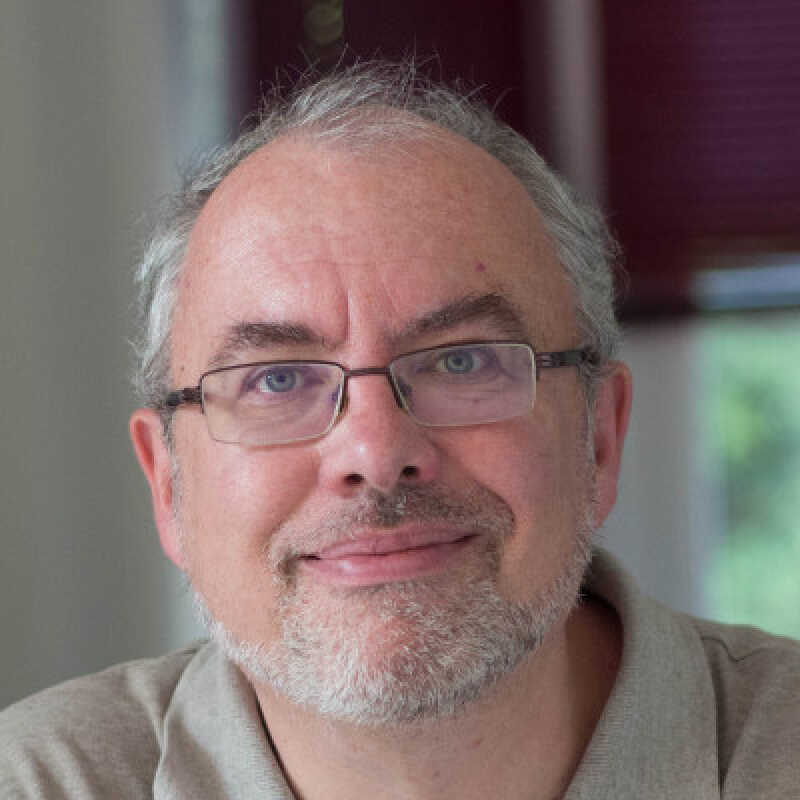- University of Kent
- School of Psychology
- People
- Professor Roger Giner-Sorolla
Professor Roger Giner-Sorolla


Professor Roger Giner-Sorolla completed his undergraduate degree at Cornell University and was awarded his PhD in Social Psychology from New York University in 1996. After a postdoctoral fellowship at the University of Virginia and two year-long contracts, he joined the University of Kent in 2001. He was promoted to Professor in 2013, and has been Editor-in-Chief of the Journal of Experimental Social Psychology from 2016-2022. Currently, he is Principal Investigator on a Leverhulme Foundation grant examining the causes and consequences of treating whole professions as morally heroic.
Roger's main field covers the social role of emotions, particularly those with a moral application. He is an advocate of transparency in scientific reporting and has written many articles and editorials in support of improved reporting guidelines and pre-registration. He has taught Master's statistics and methodology since 2001 at Kent. He is a Fellow of the Association for Psychological Science and a member of the Society for Experimental Social Psychology.
After an early career focused on attitudes components and information processing, Professor Roger Giner-Sorolla's core research interests are currently in moral emotions, specifically the self-condemning emotions of guilt and shame, and the other-condemning ones of anger, contempt and disgust. He studies the related topics of intergroup apologies, dehumanisation, emotionally driven prejudice, and collective moral roles. He also has a side interest in the ironic enjoyment of music and other aesthetic experiences.
Key publications
| January 2025 | R. Giner-Sorolla Leverhulme Grant Award Hard to be a Hero? Paradoxes When Key Workers Are Cast in the ‘Hero’ Role. | £130,000 |
| 2013-14 | R. Giner-Sorolla ESRC Evaluation of Emotion Regulation of Others and Self (EROS) | £15,000 |
| October 2009 | R. Giner-Sorolla, M Van Vugt and S Derbyshire ESRC/MRC Guilt and self-control in indivual and social dilemmas | £62,000 |
| June 2009 | R. Giner-Sorolla and M Weick ESRC UK Social Cognition Network | £32,240 |
| May 2009 | R. Giner-Sorolla and M Van Vugt ESRC The Social Guilt Hypothesis | £167,855 |
| June 2006 | R. Giner-Sorolla University of Kent Promising Scholars Award |
|
| June 2005 | R. Giner-Sorolla Wellcome Trust Vacation Research Scholarship |
|
| 2005-2006 | R. Giner-Sorolla ESRC The recipient’s view of compunction between groups | £45,000 |
| 2005-2007 | R. Giner-Sorolla British Academy Small Grant Are affectively based attitudes stronger, faster, and more automatic? | £7,500 |
| 2005-2006 | R. Giner-Sorolla ESRC Anticipated and actual affect in prejudice control | £95,000 |
| 2003-2004 | R. Giner-Sorolla and R J Brown ESRC When and how does feeling guilty reduce prejudice? | £40,000 |
| 2003-2004 | R. Giner-Sorolla and R J Brown ESRC When and how does feeling guilty reduce prejudice? | £40,000 |
| 2003-2004 | R. Giner-Sorolla and R J Brown European Science Foundation Workshop Award New directions in intergroup emotions (workshop conducted in September 2004) |
PSYC7103 Advanced Research Methods and Statistics
PSYC6360 Being a Smart Research Consumer
Professor Giner-Sorolla is available to supervise PhD candidates who arrive with a clear vision of what they want to study that broadly fits with his research interests - that is, morally relevant emotions, collective emotions and apologies, dehumanization, or one of the other topics listed above.
Current PhD students (primary supervision)
2024: Catherine Palmer, “Beneficial effects of the emotion of shame”
2023: Hadi Shaban Azad, “Gheirat as an emotion of social defence: Western analogues and differences”
2017: Anne-Christine Wikman, “Determinants and consequences of resentment”Past PhD students
2019-2023: Daqing Liu, “Determinants of moral character judgments leading to disgust reactions”
2019-2023: Felicity Gallagher, “Creepiness as an emotion in sexual harassment”
2019-2023: Nuray Demir, “Group status and defensive dehumanization”
2015-2019: Heather Rolfe, “Moralization of musical taste”
2015-2019: Daniel Noon, “The antecedents and functions of group-based moral emotions” (co-supervision with Dr P. S. Russell, University of Surrey)
2014-2017: Tom Kupfer, “Social functions of moral disgust”
2013-2016: John Sabo, “The morality of disgust, gore and violence in entertainment and imagination”
2013-2016: Darren McGee, “Shame and guilt in social and religious relationships”
2012-2016: Stine Torp Løkkeberg, “Shame and doctor-patient communication” (co-supervision with Dr N. Gausel, Østfold University College, Fredrikstad, Norway)
2010-2013: Neil McLatchie, “Guilt, self-control, and the brain”. Co-supervision with Dr S Derbyshire, School of Psychology, University of Birmingham
2009-2013: Erica Zaiser, “Reception of intergroup apologies by apologizing group members”
2006-2009: Pascale S. Russell, “Disgust, anger, and emotional justification”
2005-2009 : Valeschka M. Guerra, “Individual and cultural differences in bases for moral judgment”
2003-2007: Roberto Gutierrez, “Anger and disgust in moral judgment”
Membership of professional organisations
Loading publications...
Showing of total publications in the Kent Academic Repository. View all publications